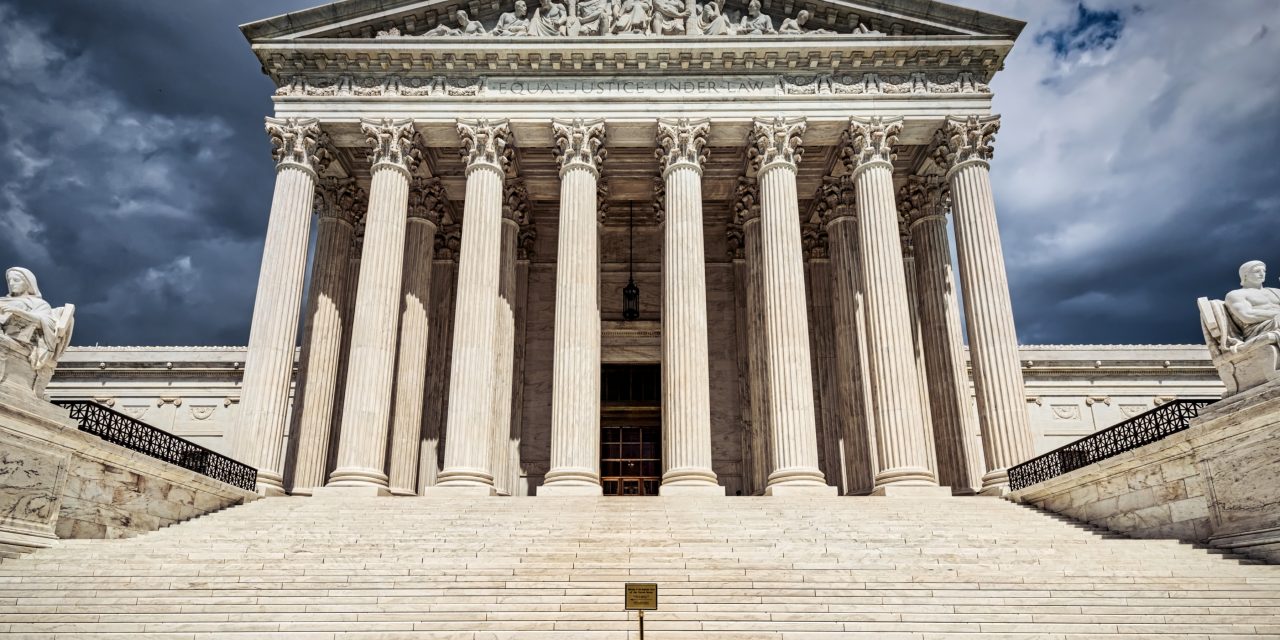The Supreme Court ruled on June 25 that certain asylum seekers forced through a fast-track deportation process at the U.S. border, called “expedited removal,” cannot challenge their deportations in federal court. Foreclosing a critical way to challenge these error-prone deportation orders leaves people even more vulnerable to abuse by immigration authorities.
In Department of Homeland Security v. Thuraissigiam, the Supreme Court found that an asylum seeker who was apprehended close to the U.S.-Mexico border had no constitutional right to a federal court review of his deportation order.
Vijayakumar Thuraissigiam, a member of the Tamil ethnic minority, fled Sri Lanka after being abducted and beaten. U.S. immigration officials subjected him to expedited removal and ordered him deported.
Expedited removal allows low-level immigration officers to quickly deport certain people who arrive at a U.S. border without proper documentation. When an asylum seeker expresses a fear of being deported, a single asylum officer decides whether their fear is credible. This decision gets finalized with a simple rubber stamp approval from a supervisor and only cursory review by an immigration judge.
Unsurprisingly, the process is prone to government abuse and error. Immigration officers often fail to inform migrants of their rights and what the process entails.
Immigration officers often don’t tell people they can seek asylum in the United States or inquire about the individual’s fear of persecution. They have also been known to provide inadequate language interpretation and fail to correctly record the results of the credible fear interview. Officers also often don’t explain their reasons for denying a claim.
Most recently, the government began permitting agents from U.S. Customs and Border Protection (CBP) to conduct these sensitive asylum screening interviews. There is serious concern with taking them out of the hands of trained asylum officers and placing them with CBP, a law enforcement agency with a history of abuse and misconduct toward asylum seekers.
In Thuraissigiam’s case, the asylum officer and immigration judge failed to follow the required procedures and failed to apply the correct legal standards.
Despite these failings, the Supreme Court concluded the Constitution did not give Thuraissigiam a right to seek federal court review of his faulty expedited removal order. The Suspension Clause—part of the original Constitution and therefore pre-dating the Bill of Rights—was designed to protect access to the courts through habeas corpus proceedings. But the Court narrowly interpreted the Suspension Clause to exclude Thuraissigiam’s claims.
The Court also found that because he was arrested only 25 yards from the U.S. border, he had not entered the United States and could not claim any due process right to court review.
Written by Justice Alito, the Thuraissigiam decision is steeped in distrust of asylum seekers.
Justice Alito suggests that asylum seekers are abusing the credible fear process because a relatively small percentage of those found to have a credible fear have been granted asylum so far.
But this ignores the enormous backlog in immigration court cases and the other obstacles asylum seekers face in pursuing their claims. This includes increasingly harsh Trump administration policies that have nearly decimated the U.S. asylum system.
The Supreme Court’s decision leaves already vulnerable asylum seekers, suffering from trauma and often without access to attorneys, at even greater risk of abuse in a fast-track deportation system riddled with error.
The effect may be widely felt. The Trump administration is fighting to vastly expand expedited removal to include certain people arrested anywhere in the United States who cannot prove that they have been living continuously in the country for two or more years. If the Trump administration succeeds in this expansion, even more people will need federal court review to ensure that they are not illegally deported.
FILED UNDER: expedited removal, Supreme Court


